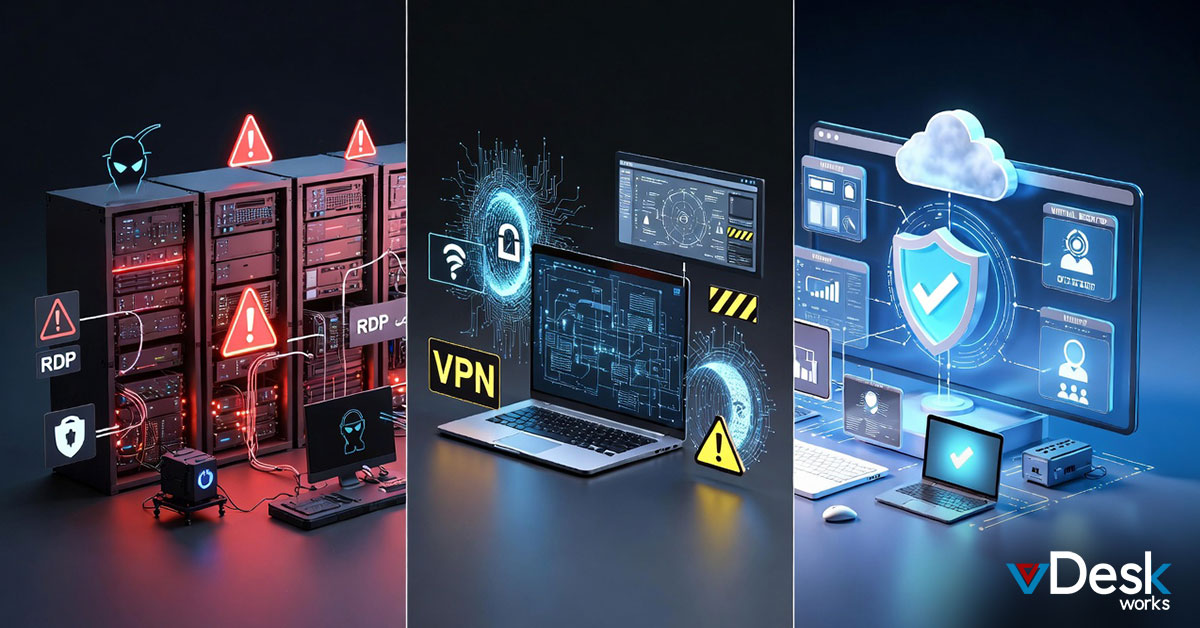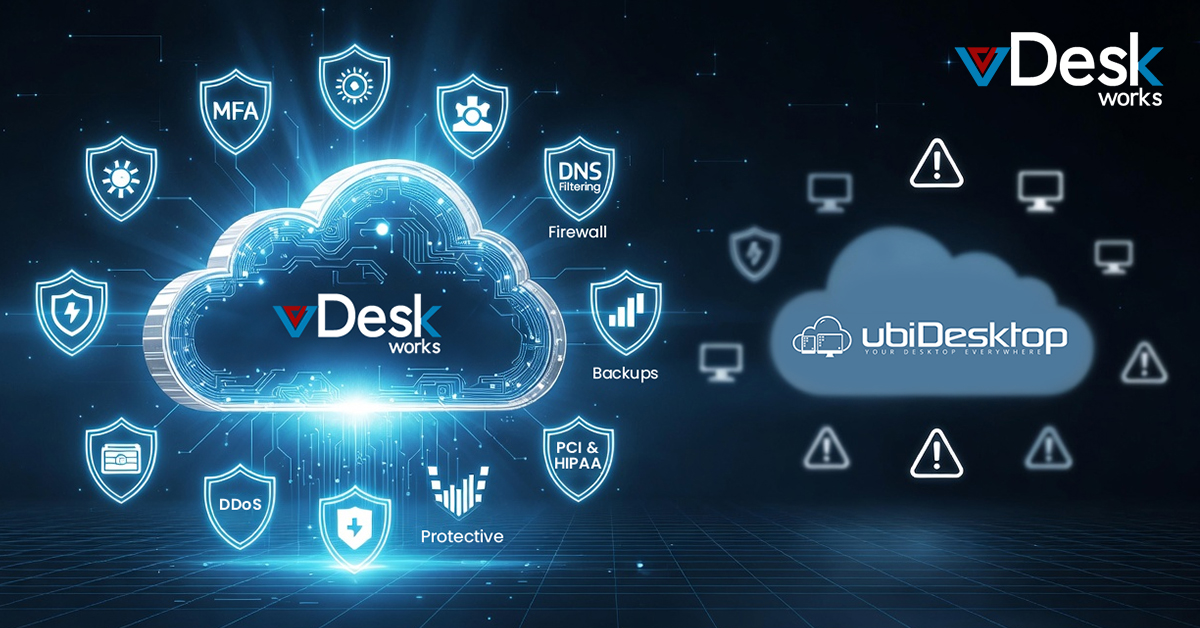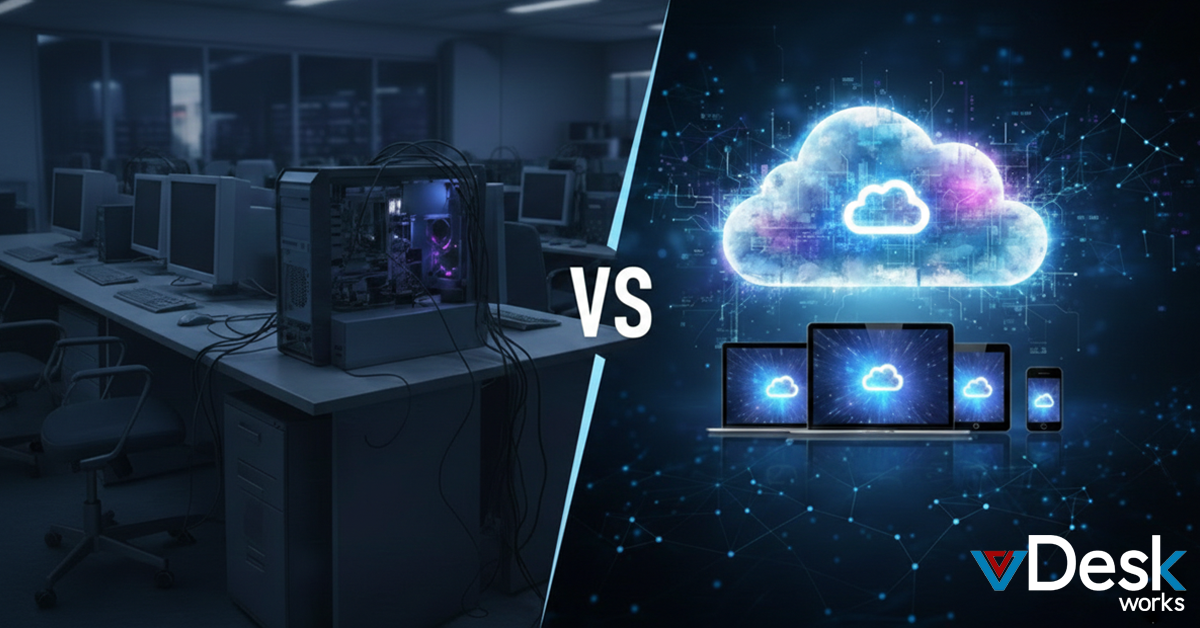Virtual desktops have become a viable alternative to standard desktop PCs, especially for small and medium businesses (SMB). Although virtual desktops may not be appropriate for every business, those that are considering them should consider the following 4 real world cases of VDI and its benefits for small businesses.
Quick BYOD Implementation
BYOD can be implemented within a business at a much faster rate when virtual desktops are used. If the infrastructure has already been standardized, both hardware and software needs can be met with minimal work after signing off on policies and protocols for the transition.
However, SMB IT departments need to ensure that with the transition to BYOD there is a clear understanding of who owns what hardware, whether it is on-site or off-site, in order for issues such as upgrades and maintenance not to fall through the cracks.
Takeaway: If you're looking to implement a fast solution for new hires or current employees who want to use their own devices, virtual desktops are an ideal option due to their quick deployment time and their ability to work on existing infrastructure.
Non-Stop Business Continuity
After a natural disaster, it is common for businesses to lose power and internet connectivity. Having any type of virtualization in place will allow users to work from mobile devices or even paper documents if necessary. This is where having a proper backup plan comes into play. If you are a small business who relies heavily on their computers virtualization with proper backup can work for you in a disaster.
Takeaway: Always create a backup plan in case of emergency or disaster; this is essential for any small business. If you have a virtualized environment, you will be able to continue operating even if your physical location is not available.
Remote Working
Working remotely has become increasingly popular for both SMB's and large enterprises. Small businesses have the option of working from home to save costs, while larger entities are finding value in having workers telecommute.
Virtual desktops allow users to work from anywhere as long as they have access to the Internet. For example, if an employee is out sick and cannot come into the office, they will still be able to continue working on a virtual desktop or mobile device.
Takeaway: Virtual desktops are especially helpful for telecommuters, travelers, the disabled or anyone who cannot commute to their office due to infrequent travel or personal circumstances.
Ease Of Administration
Virtual desktops can be administered by one person, instead of having to employ an entire IT department for desktop support. Administrators will no longer need to worry about handling updates and patches; this can all be handled centrally via the virtualization platform itself. If you are running your virtualization platform in a hybrid environment, administrators will be able to manage their environment using a web-based console, providing ease of management across remote and even mobile platforms.
Takeaway: If you have an IT team consisting of only one person, virtual desktops could greatly simplify your life by absorbing some or all of the tasks that are currently being handled. This may save your business time and money, while also providing you with flexibility.
Having a virtual environment in place is beneficial for small businesses; they get to reap the same benefits as larger corporations while only paying for what they need. By choosing a virtual platform that provides options such as cloud-based, hybrid or even on-premises environments, SMB's can be confident that their business will be able to easily scale on top of a virtual platform with minimal costs.
To learn more about VDI and its benefits for small businesses, schedule a demo with vDesk.works today. Get secure and centralized management for your desktops with the ability to scale when needed. Contact us at info@vdesk.works today!


 Jerry Clark
Jerry Clark
















